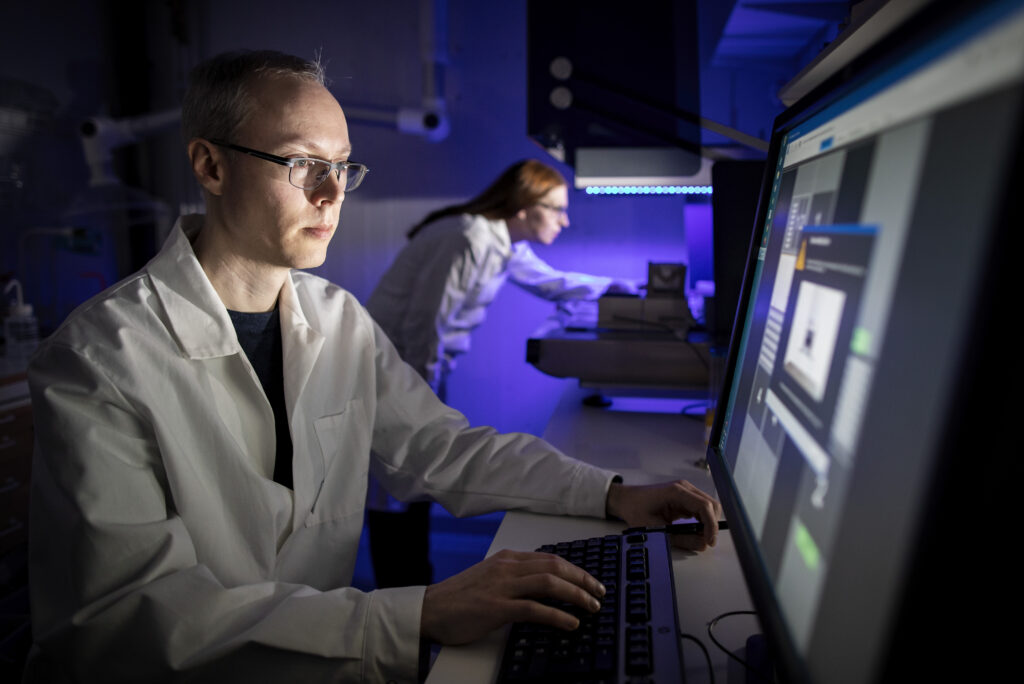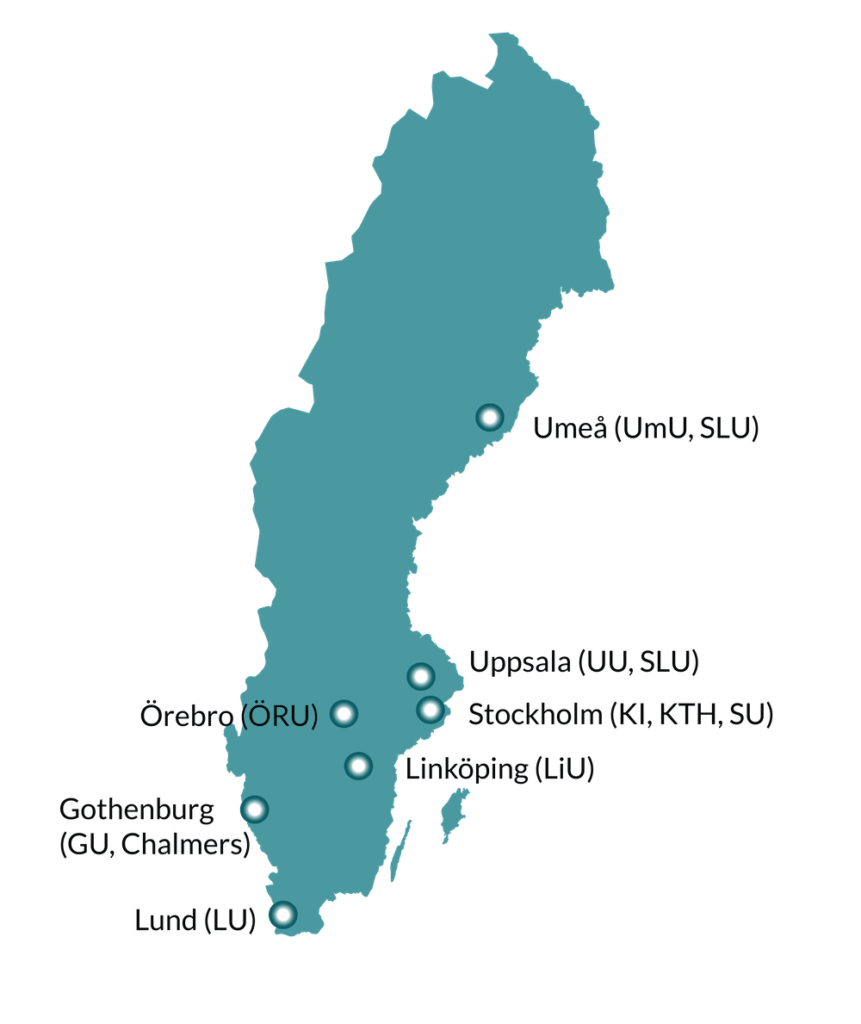SciLifeLab is an institution for the advancement of molecular biosciences in Sweden.
[videopop]Providing capabilities for life science
SciLifeLab, is an institution for the advancement of molecular biosciences in Sweden, funded as a national research infrastructure by the Swedish government.
SciLifeLab leverages the unique strengths of individual researchers across Sweden into a focused resource for the life science community, and provide access for thousands of researchers to the cutting-edge instrumentation and deep scientific expertise necessary to be internationally competitive in bioscience research. The infrastructure is supported and developed by our research community and form a unique environment for carrying out health and environmental research at the highest level.
SciLifeLab started out in 2010 as a joint effort between four universities: Karolinska Institutet, KTH Royal Institute of Technology, Stockholm University and Uppsala University. Today, we support research activities at all major Swedish universities.
Our vision
For Sweden to be a world-leading nation in life science
Life science is a field of high strategic importance for Sweden, as it impacts the development of healthcare, industry, agriculture and our environment globally. Our success within life science lies in our ability as a country to advance research, innovation, recruitment, collaboration and utilization of data, in an environment of scientific excellence and cutting-edge research infrastructure.
The overall mission for SciLifeLab is to enable life science research in Sweden that is beyond what is possible for an individual researcher, an individual university or an individual research discipline. By providing access to the latest key technologies, our infrastructure creates prerequisites for research and conceptually new forms of collaboration between individuals, groups and organizations.
We strive to leverage this strong technology base, in collaboration with universities, industry, healthcare and national funding agencies.

TOWARDS TECHNOLOGY- AND DATA-DRIVEN LIFE SCIENCE
SciLifeLab & Wallenberg Program for Data-driven Life Science
In October, 2020, the Knut and Alice Wallenberg Foundation announced a SEK 3,1 billion 12-year funding initiative to support data-driven life science, DDLS, in Sweden – naming SciLifeLab the host. Read more about the initiative and its upcoming developments on the link below.
ETHICAL DIMENSIONS
Code of Conduct
The SciLifeLab community recognizes the importance of a healthy and safe work environment for productivity and success. The SciLifeLab Code of Conduct guides responsible conduct in research infrastructure services and research, ensuring a respectful and healthy working environment, and a positive impact on society.
TOWARDS TECHNOLOGY- AND DATA-DRIVEN LIFE SCIENCE
Roadmap 2020-2030
Curious about the steps SciLifeLab will be taking towards a more technology- and data-driven approach to life science? Take a peek at our new 10-year strategy – jointly created by the SciLifeLab community, our host universities and a number of Swedish life science stakeholders.
Sites
SciLifeLab is a national research infrastructure and research community located in Gothenburg, Linköping, Lund, Stockholm, Umeå and Uppsala.
Infrastructure services and affiliated research groups – as well as members of our Research Community Programs – at a number of universities across Sweden.

Our Story
Molecular life science research is evolving rapidly. As an increasingly crossdisciplinary and collaborative endeavour, it requires combining expertise in fundamental biology with computer science, engineering, chemistry, and physics. Moreover, life science depends on advanced, often costly instruments and complex methods that are frequently beyond the capacity of an individual laboratory, or even a university.
SciLifeLab was launched in 2010 with a mission to meet these research demands through a joint initiative by four universities— KTH Royal Institute of Technology, Karolinska Institutet, Stockholm University, and Uppsala University. Today, SciLifeLab supports research activities at all major Swedish universities.